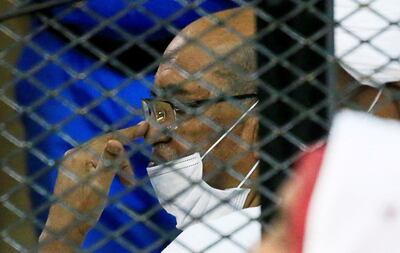The commander of Sudan’s most powerful paramilitary says he is committed to the goal of creating a “single army”, a reference to calls to integrate his Rapid Support Forces into the military.
Gen Mohamed Dagalo said this would be “according to agreed-upon timelines as per the [December 4] framework agreement, and we are sincerely committed to being involved in security and military reform”.
However, he did not specifically mention the integration of the RSF into the armed forces, raising the possibility that he might be looking for a way that allows him to retain command of his feared unit.
“The Sudanese military is a historic institution and it will not be captured by any party,” Gen Dagalo said in address to the nation on Sunday.
“We are part of it and we will not spare any effort to defend it from anyone who abuses or belittles it.”
His remarks came two days after Sudan's military ruler Gen Abdel Fattah Al Burhan said he would only enforce the agreement if there was “clear and convincing language” about integrating the RSF and former rebels into the armed forces.
The December 4 deal was agreed on by the military and a major opposition coalition to resolve a months-long political crisis and restore Sudan’s democratic transition, which was upended when Gen Al Burhan seized power in a military coup in October 2021.
It provides an avenue for the military to quit politics and for a civilian prime minister to steer the country for 24 months until elections are held.
It also recognises the RSF as a legitimate force, stipulates its integration into the armed forces and calls for the reform of military and security and intelligence agencies.

The RSF, created by ousted dictator Omar Al Bashir in 2013, has its roots in the feared Janjaweed militia that fought on the government’s side against rebels in the western Darfur region in the 2000s.
The militia is widely believed to have committed widespread atrocities against civilians during that conflict.
It is also suspected of being behind the deadly clampdown on a sit-in protest camp outside the armed forces’ headquarters in central Khartoum in June 2019.
Gen Dagalo is now Gen Al Burhan’s deputy on the military-led Sovereign Council but there are persistent reports that the pair are at odds as they vie for power, the support of regional countries and a political future with immunity from prosecution after they step down.
The integration of the RSF into the armed forces has long been a demand of pro-democracy groups but Gen Dagalo is known to be reluctant to give up absolute control over a force that is heavily armed and combat seasoned.
Units of the RSF have been deployed throughout Khartoum and across much of Sudan in what many believe is a show of force.

In his remarks on Sunday, Gen Dagalo also warned against any meddling by Islamists who lost control of the country in 2019 with the overthrow of Al Bashir.
“We will not allow elements of the vanquished [Al Bashir] regime to drive a wedge between the Rapid Support Forces and the army,” he said.
However, he said the October 2021 coup was a mistake that served as a “gateway” for Al Bashir loyalists to make a political comeback.
“I realised from the first day that it will not deliver what we had hoped for,” said Gen Dagalo, who supported the 2021 power grab, joining Gen Al Burhan in justifying it as a necessary measure to spare the country from a civil war and stop civilian politicians from sowing divisions among Sudan’s many ethnic and religious communities.
Gen Dagalo left Khartoum for the UAE on Sunday night. His trip follows Gen Al Burhan's visit to the Emirates earlier in February.
The UAE — along with the US, the UK, Norway and Saudi Arabia — played a major role in mediating weeks of tortuous negotiations that resulted in the December agreement.
The negotiations also involved representatives of the UN, the African Union and the regional the International Fund for Agricultural Development group.


